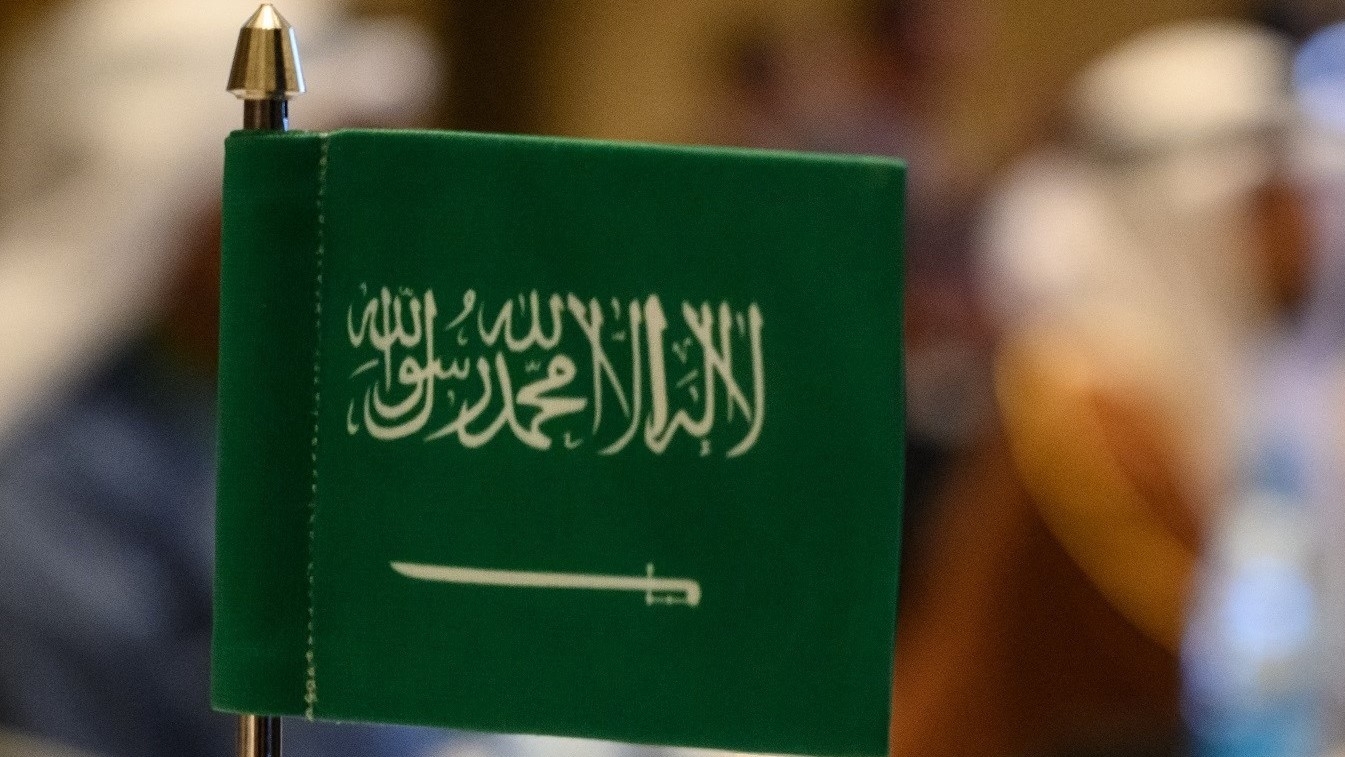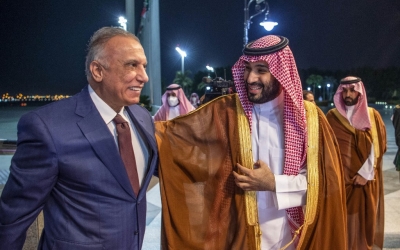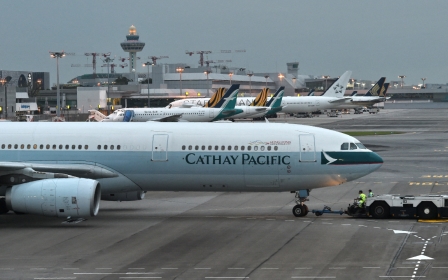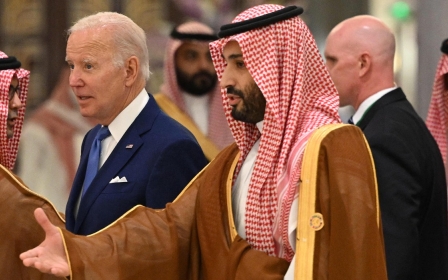Saudi Arabia: Israel's refusal to join UN treaty a 'grave obstacle' to nuclear disarmament

Saudi Arabia has raised concerns about Israel's refusal to join a United Nations nuclear non-proliferation treaty, saying it was an obstacle to achieving peace in the region.
The warning was a rare moment of Saudi criticism of Israel, with Riyadh and other Gulf countries recently working together, along with Israel, to combat Iran's nuclear programme.
Saudi Arabia's new permanent representative to the United Nations, Abdulaziz al-Wasil, made the comments on Wednesday during a conference to review the UN's Non-Proliferation Treaty.
'Israel is refusing to respect international resolutions'
- Abdulaziz al-Wasil, Saudi ambassador to UN
"There is Israel's continuing refusal to accede to the [Non-Proliferation Treaty] and this is a grave obstacle" for nuclear disarmament, Wasil said.
"The aim of the treaty is for non-nuclear states to be able to enjoy security guarantees in terms of the recourse to atomic energy and the use of atomic energy," Wasil said.
New MEE newsletter: Jerusalem Dispatch
Sign up to get the latest insights and analysis on Israel-Palestine, alongside Turkey Unpacked and other MEE newsletters
"Israel is refusing to respect international resolutions on this and is ignoring all recommendations and decisions from the NPT."
The NPT is an accord that was created in 1970 to work towards peaceful nuclear energy programmes and pursue nuclear disarmament around the world. A total of 191 countries have joined the pact, including all five countries that have nuclear weapons. Iran is also a part of the treaty.
Israel is not a signatory to the agreement, and has not accepted safeguards from the International Atomic Energy Association. The country neither confirms nor denies it has nuclear weapons.
'Middle East Air Defence Alliance'
The comments from the Saudi ambassador came a day before a commercial flight headed for Israel entered Saudi airspace, the first time since the kingdom last month opened its skies to all flights, including those from Israel.
In July, Saudi Arabia announced it had opened its airspace to all civilian overflights just hours before Joe Biden became the first US president to fly directly from Israel to the kingdom.
While the two countries do not have formal diplomatic ties, Saudi Crown Prince Mohammed bin Salman, the kingdom's de facto ruler, has signalled his interest in improving relations with Israel.
The airspace agreement was seen as a broader warming of ties between the two countries, amid a regional effort by Arab Gulf states to create a bulwark against a mutual foe in Iran. In 2020, four Arab countries - the United Arab Emirates, Bahrain, Morocco and Sudan - agreed to normalise ties with Israel under an agreement brokered by the Trump administration.
In June, Israeli Defence Minister Benny Gantz said the country was helping build a US-led regional defence pact against Iran, dubbed the "Middle East Air Defence Alliance".
In a briefing to lawmakers, he acknowledged for the first time there was a regionwide military alliance with other Arab countries.
The US has also sought to strengthen cooperation between Israel and its Arab neighbours as it looks to counter Iran and address rising challenges from Russia and China outside the region.
Saudi Arabia and Iran have backed opposing sides in regional conflicts and political disputes in Syria, Lebanon and Iraq for years, and Saudi Arabia has led an Arab coalition waging war against the Iran-aligned Houthi movement in Yemen since 2015.
Riyadh and Tehran, which have had no diplomatic ties since 2016, however, have been engaged in several rounds of talks hosted by Iraq over the past year.
Middle East Eye delivers independent and unrivalled coverage and analysis of the Middle East, North Africa and beyond. To learn more about republishing this content and the associated fees, please fill out this form. More about MEE can be found here.





